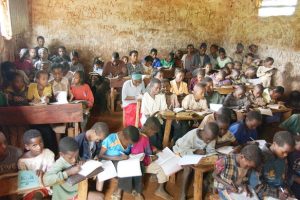
Free and fair elections play a critical role in political transitions by advancing democratization and encouraging political liberalization – helping to promote peaceful, democratic political transformation that lead to increased stability and prosperity.
From the onset, it is imperative to mention that peace is essential for any country as it provides hope for a better future, particularly for the youths, who are the true ambassadors of the future.
As Ethiopia is going to hold National Election in a short period of time, June, 2021, it is vital to inculcate the significance of elections and its aspect on everyone’s life. What is equally important is that the fact that citizens cannot overlook the importance of incorporating peace and stability in their mindsets during the election process.
History has taught us that those elections we had held in earlier times could not bring about the desired democratic outcome we all were inspiring towards in terms of creating opportunities and making a positive impact in the way we do things except fuelling violence. Unarguably, violence always affects the whole system and consequently disrupts the livelihood of innocent citizens.
To the contrary, peace ensures and allows voters to exercise their constitutional and democratic rights, to cast votes and elect their candidates of choice without fear or intimidation. Free and fair elections can only be achieved when peace is apparent. It also helps us to ensure that the entire election process runs smoothly as the only way to be certain of a smooth and fair election process is to maintain law and order, peace, safety and security at election polls. Thus, paving ways for more inclusive and transparent election, creating informed communities who could use the election cards for the right purpose is fundamental.
Needless to say that election can raise emotions; and not everyone will be satisfied with the result of it among contending parties and supporters for various issues. To arrest such emotional pressures and shape them to more constructive manner, taming the communities through platforms is fundamental.
With this same purpose, hence, the U.S. Embassy to Ethiopia has organized platforms that enables the youth population express and share their ideas in more civilized manner.
According to the press release issued by the Embassy, the Embassy is working to flag moderate debates and dialogue as the nation is about to conduct the 2021 election next month, June, 2021. The platform was organized in collaboration with the International Republican Institute.
In this TV debate series known as “Warka: The Big Debate,” which is similar to the way Ethiopians used to gather under a Warka tree, an indigenous fig tree, to conduct debates, 16 Addis Ababa University students will come together to trade ideas and solutions through respectful, moderated dialogue.
The Big Debate,” “Warka” is a debate competition showcasing eight teams of two individuals across eight in 45-minute episodes. The show builds on the structure and culture of Ethiopian traditional debates, with a modern twist, to encourage Ethiopian youth peacefully involved in discussing key political, economic, and social issues that affect their lives as well as their communities.
As it is stated, the show will be broadcasted on Ahadu Radio on every Monday at 10:00 AM and on Saturday at 3:00 PM starting from May 3, 2021. “Warka: The Big Debate” aspires to increase Ethiopians’ confidence in expressing their opinions and engaging constructively and peacefully with opposing views. It will also provide viewers with an opportunity to enhance their knowledge of diverse topics facing Ethiopia by watching and hearing these talented teams present various angles of contemporary issues, from social media monitoring to climate policy to continental trade agreements.
At the same time, the audience will see first-hand examples of constructive debate, while watching students contemplate a range of factors that should be considered when discussing an issue and making policy decisions. The program also aspires to encourage students to nurture the culture of respectful debate both in schools and in the community. These teams of student leaders featured on the show demonstrate the importance of encouraging dialogue and the value of youth engagement in the constructive discussion of issues facing Ethiopia.
The dialogue is instrumental for understanding varied issues, which can be used as a tool in peace building and can contribute hugely to adaptability.
The 16 debate participants were selected out of 200 students who originally auditioned in 2020. Prior to airing the show, the students were provided training and mentorship, it was learnt.
BY MENGISTEAB TESHOME
The Ethiopian Herald May 5/2013





